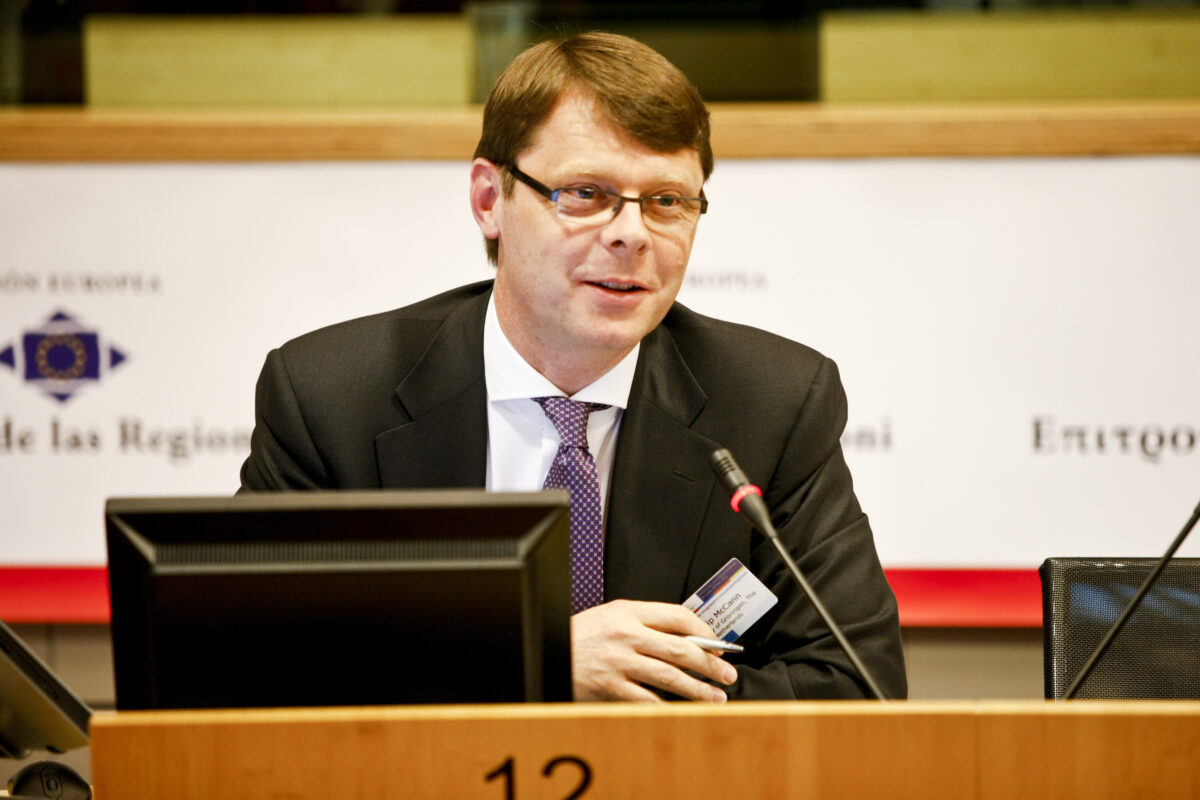Workshop - Theoretical Reflections on EU Cohesion Policy
THEORETICAL REFLECTIONS ON EU COHESION POLICY
22-23/March 2021
DEPARTMENT OF EUROPEAN STUDIES,
POZNAŃ UNIVERSITY OF ECONOMICS AND BUSINESS (PUEB)
DEADLINE FOR SUBMISSION OF ABSTRACTS: 05 March 2021
In recent years many researchers have analysed CP from different angles using the lens of economics, economic geography, management, political science or history. The Seventh Report on economic, social and territorial cohesion states that “regional economic divergence has become a threat to economic progress in the EU at a time when globalisation poses new challenges to economic cohesion”. This points to, on the one hand, the limited effectiveness of current CP measures in curbing the global trends affecting European regions and cities, and the persistence of barriers in achieving the socially acceptable levels and conditions of life, and on the other hand, the change of determinants which as a result of globalisation shape economic and social processes. Today, there is a notable trend towards the change of the magnitude of development factors, and it likely affects the change in the structure and courses of development trajectories. These changes include, e.g. greater human mobility, more flexible jobs, permanent mismatch in the labour market, unfavourable demographic changes, new kinds of footloose industries, improvement in territorial cohesion in terms of physical infrastructure and related ones. If the development factors change, there is a need to revise them, give their new interpretations and clarify their impact mechanism on. What is more, different regions seem to be growing based on different development models, which puts additional challenges to policies, for which the place-based approach may not be enough. Finally, the changes proposed by the policy-makers regarding the aims of the CP, the scope of its instruments and the shift of focus towards current problems of functioning of the EU, require a return to the deep theoretical reflections on the policy.
Therefore, the following research questions would be addressed in the workshop:
- Why do we have Cohesion Policy?
- What should be its distinctive objectives, different and complementary to others by the EU?
- Which theoretical approaches are missing when analysing and implementing the policy?
- Is convergence still a “key-word” in the policy?
- Is history of economic thoughts useful for analysing Cohesion Policy?
- What are the directions to improve the Cohesion Policy towards the next decades?
- What is the role of Cohesion Policy role in the process of integration/ disintegration of the European Union?
- What are the synergies of Cohesion Policy with other policies, instruments, initiatives and programmes (e.g. Horizon, Common Agriculture Policy, transport and environment policy, trade policy, external relations and aid programmes)?
- Should macro-economic and other conditionalities be kept when looking from a theoretical angle?
- Does Cohesion Policy fuel theories, or it is a reciprocal action between theory and practice?
KEYNOTE SPEAKER
 Philip McCann is Professor of Urban and Regional Economics at the University of Sheffield UK. He is one of the world’s most highly cited spatial economists and economic geographers and has won seven academic awards, including ERSA European Prize for Regional Science in 2019, for his research in different parts of the world. Philip was previously Special Adviser to the EU Regional Policy Commissioners Johannes Hahn (2010-2013) and Corina Creţu (2015-2016) and Chief Independent Economic Advisor on the Sixth Cohesion Report (2014). His 2015 Edward Elgar book The Regional and Urban Policy of the European Union: Cohesion, Results-Orientation and Smart Specialisation, is the most detailed, up-to-date and comprehensive analysis of the European regional and urban economic and policy landscape.
Philip McCann is Professor of Urban and Regional Economics at the University of Sheffield UK. He is one of the world’s most highly cited spatial economists and economic geographers and has won seven academic awards, including ERSA European Prize for Regional Science in 2019, for his research in different parts of the world. Philip was previously Special Adviser to the EU Regional Policy Commissioners Johannes Hahn (2010-2013) and Corina Creţu (2015-2016) and Chief Independent Economic Advisor on the Sixth Cohesion Report (2014). His 2015 Edward Elgar book The Regional and Urban Policy of the European Union: Cohesion, Results-Orientation and Smart Specialisation, is the most detailed, up-to-date and comprehensive analysis of the European regional and urban economic and policy landscape.
PRESENTATIONS proposals
We invite theoretically rooted, research-based presentation proposals from both scholars and practitioners, which address the questions listed above.
We invite you to submit an abstract of up to 500 words summarising your research and clearly outlining its originality and contribution to the scholarly and/or policy debates
Proposals and abstracts should be submitted to rsacpnet.poznan@gmail.com
Registration:
Deadline for Submission: 5 March 2021
Acceptance notification: 12 March 2021
Registration final programme: 18 March 2021
ORGANISATION
Presentations will be limited to 15 minutes to allow room for discussants’ feedback and debate. Speakers are encouraged to use images, diagrams, infographics and other types of visualisations in their presentations. Usually, a good presentation has no more than 35-50 words per slide.
All presentations will take place online and grouped in panels by theme. Each panel will last maximum 2 hours taking place on a different day, and will be organised as follow
- Keynote lecture (about 30 minutes)
- Three Presentations (15’ minutes each)
- Discussion
The keynote lectures will be broadcasted, the parallel session not, but those interested can register and attend for free the online event.
Speakers are warmly invited to send a 1-slide image to be shared on the social media of the research network. This image should be provided 6 days before the workshop (16 March 2020) according to the layout provided by the research network.
Presenters will be invited to contribute to a policy statement to be released just after the event.
Practical information
This workshop will be held under the auspices of the Regional Studies Association’s Research Network on EU Cohesion Policy, co-organised with the Network`s partners and hosted by the Department of European Studies of the Poznań University of Economics and Business (PUEB).
More information about the Network can be found on the RSA website and on Facebook.
Main Organisers for this workshop are: Ida Musialkowska, Piotr Idczak and Dorota Czyżewska-Misztal (PUEB) as local organisers
Ugo Fratesi (Politecnico di Milano, IT), Sebastien Bourdin (Normandy Business School), Mara Giua (Università degli Studi Roma Tre), Serafin Pazos-Vidal (COSLA), Riccardo Crescenzi (London School of Economics), Ekaterina Domorenok (Università di Padova), Nicola Francesco Dotti (VUB), as academic convenors.
Participation in the event is free of charge. Participants not presenting papers are very welcome but will need to register.
For any other inquiries please contact the local organisers of the workshop (Ida Musiałkowska, Piotr Idczak, Dorota Czyżewska-Misztal (ida.musialkowska@ue.poznan.pl)
For any other enquiries please contact Nicola Francesco Dotti (Nicola.Dotti@vub.be).
PROGRAMME
THEORETICAL REFLECTIONS ON EU COHESION POLICY
22 MARCH 2021
DEPARTMENT OF EUROPEAN STUDIES,
POZNAŃ UNIVERSITY OF ECONOMICS AND BUSINESS (PUEB)
Agenda
Plenary session 14.00-15.30
The Challenges Facing EU Cohesion Policy in the Context of Covid-19 and Climate Change
Philip McCann, University of Sheffield
Session 1: 15.45-17.15
The Dark Side of the Geography of Innovation: Relatedness, Complexity, and RegionalInequality in Europe
Flavio L. Pinheiro, Universidade Nova de Lisboa
Pierre-Alexandre Balland, Utrecht University
Ron Boschma, Utrecht University, University of Stavanger
Dominik Hartmann, Federal University of Santa Catarina, University of Hohenheim
What is the role of Cohesion Policy role in the process of integration/disintegration of theEuropean Union?
Ilaria Ottaviano, University “G. D’Annunzio” of Chieti-Pescara
Impact of European Cohesion Policy on regional growth: When time isn’t money
Benoit Dicharry, BETA, University of Strasbourg
Spatial Distribution of JESSICA Funding Across Polish Municipalities. Perspective ofTerritorial Dimension of EU Cohesion Policy
Ida Musiałkowska and Piotr Idczak, Poznań University of Economics and Business
Session 2: 17.30-19.00
The sustainable competitiveness of the CEE regions in the post-COVID-pandemic - the caseof Polish regions
Małgorzata Dziembała, University of Economics in Katowice
Cohesion in the new sustainability framework
Cristina Lincaru, National Scientific Research Institute for Labour and Social Protection
The Demise of “place”? Assessing the Cohesion Policy package 2021-2027 in the times ofCOVID-19 and Structural Reform
Serafin Pazos Vidal, PhD European Union, Convention of Scottish Local Authorities
Conceptual and policy changes underpinning the European Union Cohesion Policy: fromexogenous to endogenous perspectives
Anastassios Chardas, Democritus University of Thrace

